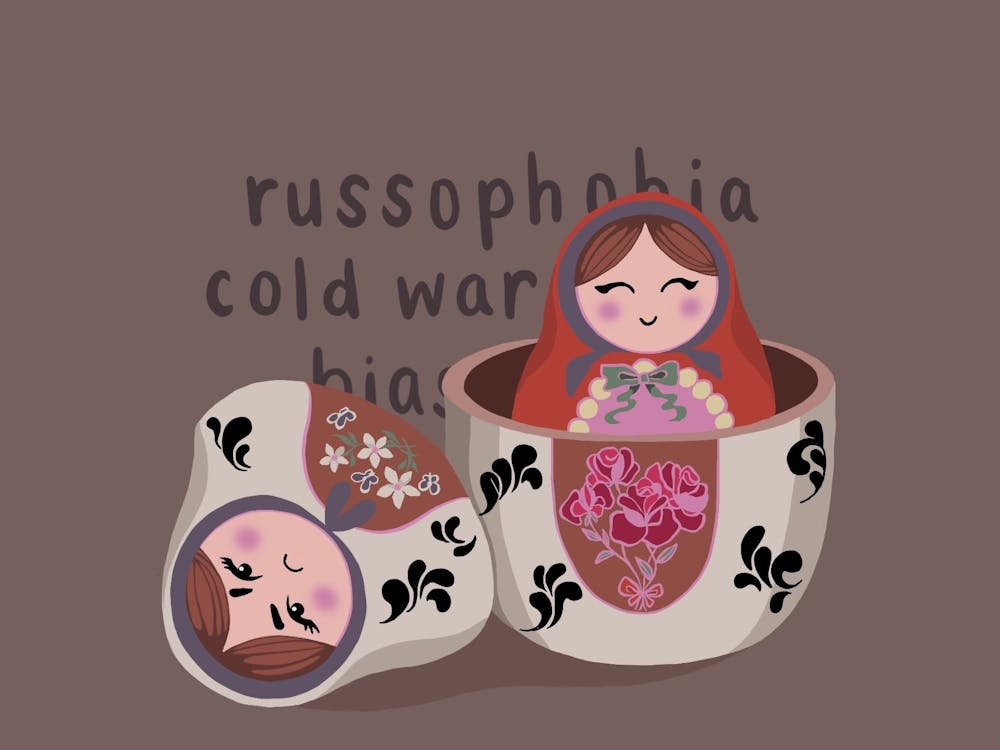Last June, the New York Times published an Opinion Column titled “The Strange Death of Liberal Russophobia,” in which Opinion Columnist Ross Douthat praised the Biden administration for adopting a more “conciliatory” stance towards Russia. Yet just six months later, Biden-nominated U.S. Secretary of Defense Lloyd Austin accidentally referred to Russia as ‘the Soviet Union’ in connection with the ongoing Ukraine crisis: “Whatever we do will be done as a part of an international community. The best case though is that we won’t see an incursion by the Soviet Union into [Ukraine],” he said.
Unsurprisingly, Secretary of Defense Austin’s slip-up only briefly made headlines. An American official called Russia the Soviet Union. Awkward, but so what? However, there is deeper significance to this Freudian slip. It is reflective of the fact that, regardless of Washington’s Russia policy, top U.S. officials are still stuck in a Cold War mindset when it comes to Russia. In other words, Russophobia is not dead under Biden. And unless something changes, Russophobia is here to stay.
As a Russian-American, my experiences with Russophobia began at an early age. Most of the Russophobia I experienced was related to the conflation of Russia with the Soviet Union, which dissolved in 1991. For example, when one of my classmates joked about how I should pursue a career in politics, my ninth grade English teacher chimed in, “No, she shouldn’t! She would make this country communist!”
My other experiences of Russophobia have been rooted in blatant misinformation. For example, during my visit to the Smithsonian National Air and Space Museum, I was enjoying an exhibit of WWII pilots’ uniforms when a mother and her young daughter approached the exhibit. The mother pointed at the Soviet uniform and told her daughter, “Look sweetie, this is a Russian uniform. Russians are mean and bad. During the war, no American wanted to be captured by Russians because they were mean to their prisoners.” Even instances of Soviet-U.S. cooperation are turned into moments of confrontation. This story touches me especially deeply because it shows how Russophobia is passed down from generation to generation in the United States, decades after the end of the Cold War.
And passed down it certainly is: In the United States, Russophobia starts young. This leads me to my last personal anecdote of this column. One day, when I was chatting with a third-grader, he said, unprompted, “Russians are bad!” Taken aback, I asked him, “What if I told you that I was Russian?” After giving it some thought, he responded, “Well, you are pretty nice, so for you, I guess I’ll make an exception.”
The Russophobia I experienced growing up was largely confined to personal experience. That changed during the 2016 election and the consecutive Trump Administration, during which stories of Russia — almost exclusively negative — dominated American news. Horror stories of Russian election meddling and Russian hackers circulated like wildfire. Although it is beyond the scope of this column to address the veracity of these stories, they have undeniably contributed to a new era of Russophobia.
I write this column to raise awareness about Russophobia, because although it is omnipresent, it is rarely recognized for what it is. Russophobia is simply so deeply ingrained in Americans’ subconscious that we have become blind to it. For those of us with American families, our parents and grandparents were raised in a society in which the Soviet Union was public enemy number one. For many, it has proved difficult to dissociate this fear of the USSR from their opinion of Russia. Individuals raised in that ideological environment are largely still in power. They are also our teachers and mentors, making it even more difficult to stop the cycle.
Princetonians, I urge you to begin recognizing the Russophobia around you. Stop and think: “Is this information I just read or heard about Russia based in fact and reason, or is it rooted in fear and speculation?” “Is this a genuine policy critique, or fear-mongering?” And lastly, “Would I judge U.S. policy as harshly as I am judging Russian policy?” — think U.S. and NATO defense against Russia. Just to be clear, I am not by any means defending or advocating for Putin’s Russia as a political entity. I am, however, urging you to consider how Russia’s past shapes your understanding of its present — not just politically, but also culturally.
Additionally, engage your Russian friends and classmates in genuine dialogue about Russia. Also engage Ukrainians, Belarusians, Kazaks, and members of other nationalities that have had close dealings with Russia in dialogue about Russia, for their perspectives — whether good or bad — are likely to be better informed than our sensationalist media. You might even be surprised by what you hear.
Ultimately, until our generation and the generations that follow divorce a Cold War mindset when it comes to Russia, Russophobia will continue to influence U.S. politics, media, pop culture, and academia in dangerous ways. And a peaceful, steady relationship with Russia — which few would say is unnecessary — will be close to impossible.
Genrietta Churbanova is a sophomore from Little Rock, Ark. She is Head Opinion Editor. Genrietta can be reached at geaac@princeton.edu.









